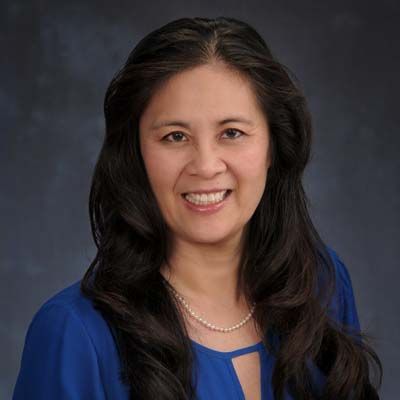LDI News
Commit to Those Things That Are Meaningful

LIWP Leader Spotlight
Debra Kawahara, PhD
APA President Elect, 2025
Associate Dean for Academic Affairs, California School of Professional Associate Dean for Academic Affairs, California School of Professional Psychology, Alliant International University
What was your biggest takeaway from LIWP?
The mentoring and networking are things I continue to use even now. I was in the first class and just the connection with women leaders that I have been able to make and the network I’ve been able to build has been valuable. Being able to reach out to that network for mentoring as I am making my own career trajectory, moving into different positions, and needing advice in certain situations has been important. I think that scaffolding mentoring, where you might get mentorship from people that are senior to you as well as from people that are at the same level, and trying to mentor and learn from those that are in an earlier stage of their careers, was really great because now I have this supportive network that I can reach out to. As an LIWP alum, I also feel like it would be easy for me to reach out to any of the LIWP Participant Leaders because we are all part of this institute. I’m always trying to recruit people that I think will be great for LIWP since I’ve learned so much from it and I feel it’s my way of giving back and moving it forward.
How did you apply your LIWP learning to your life and career?
LIWP helped me build skills that I’ve continued to use in my career. Skills like negotiation, financial skills, and being able to navigate difficult, challenging, situations. LIWP allowed me to really look at myself and evaluate, professionally and personally, what skills I need to grow and expand. I realized I need the balance between my life and my career. I mean, look at this pandemic: People are having to really negotiate life and career, because they’re at home and less able to compartmentalize. Managing work-life balance is so important.
What’s the best advice you’ve ever received?
I think the best advice that I got was, “Just go for things.” Even if you think that you aren’t ready for them or don’t have all the skills, just go for it. And to expand and push yourself, which I really have taken on in terms of taking on leadership roles. I may not have known what the role entailed, but it resonated with me as something I wanted to do. Whether it’s being the lead coordinator for the National Multicultural Conference or the editor of Women in Therapy, where I have the chance to publish scholarship, feminist, and women issues that might not be published otherwise. Even serving on the LIWP Advisory Committee: As soon as I was asked, I knew I wanted to do it. I know you are supposed to sit back and think about it, but it was just something that I wanted to do in my heart, so it was like, “Yes, I will commit to this and invest my time.”
What advice would you give to other women who are midcareer leaders in psychology?
I think my advice is probably to figure out what you want to spend your time on. You can’t do everything. Try to figure out what that sweet spot is and commit to those things that are meaningful and will actually help you get to where you want to be.
What can you share with your LIWP alumna sisters about what you learned about yourself as a leader in the process?
The phrase “collaborative leader” comes up when I think about defining myself. Within that collaboration are very much the feminist values of empowerment and looking at power dynamics. As a leader, I most get excited when I’m working with a group of people towards a goal or vision. And when you get synergy from the group, I feel like that’s success. It’s about knowing that within those group relationships you’re moving toward something together. Both the outcome and relationships are important to me, and I infuse those values into my actions as a leader.
From LeadHERship, Vol. 5 (2021)
